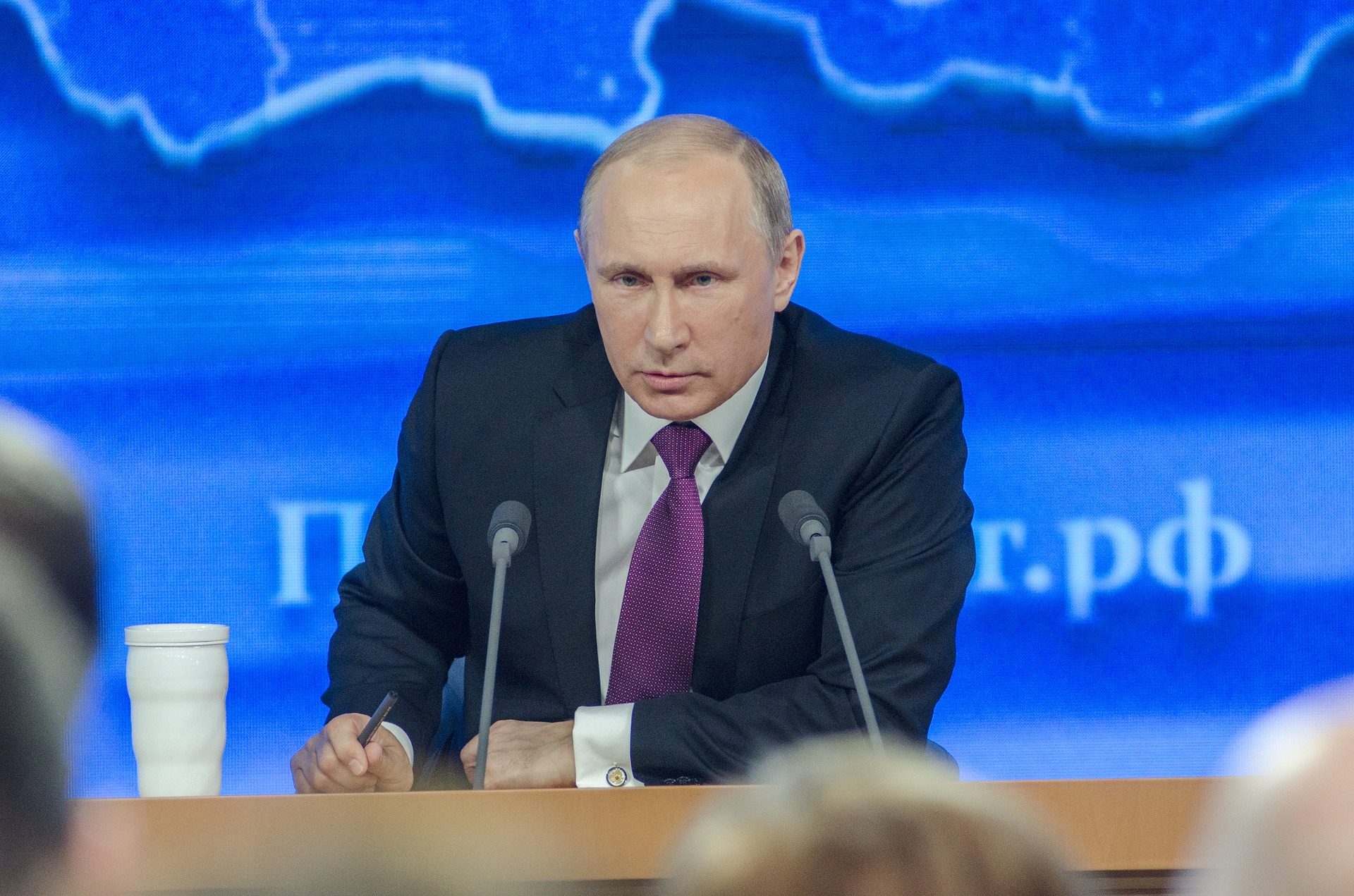 POLICY
POLICY
 POLICY
POLICY
 POLICY
POLICY
Vladimir Putin is taking aim at foreign technology firms again.
The Russian president (pictured) has just signed a law that obliges foreign social media and tech firms to establish physical offices within Russia and threatens punishments if they do not comply. The law will go into force on Jan. 1, 2022, requiring internet firms with a daily user base of more than 500,000 Russian users to establish a legal presence within Russia.
The companies must register a personal account on the website of Russia’s state communications regulator Roskomnadzor, Reuters reported today. “A foreign entity, carrying out activities on the internet in Russia, is obliged to create a branch, open an office or establish a Russian legal entity,” the new law says.
Foreign companies that violate the new legislation face penalties ranging from advertising bans to having their services blocked in Russia. Lawmakers have already identified 20 companies that will be subject to the new law, including Facebook Inc., YouTube, WhatsApp, Instagram, Twitter Inc. and Telegram Messenger Inc.
Russian authorities have worked steadily to increase their control over the internet and to reduce the country’s dependence on foreign tech companies.
In particular, Russia has objected to the use of foreign social media platforms by Kremlin opponents to organize what the government says are illegal protests. Opponents have also used social media to publicize allegations of corruption within the Russian government. Notably, Russia saw a flood of posts encouraging citizens to protest the jailing of Kremlin critic Alexei Navalny when he returned to the country in January.
Moscow has fined a number of foreign social media providers in the past for failing to delete what it says is illegal content. It has also punished Twitter by slowing down its service, and on Wednesday it opened a case against Alphabet Inc., accusing its subsidiary Google LLC of breaching legislation that governs the use of Russian citizens’ personal data.
In 2015, Russia enacted a law that orders foreign technology companies to store all data they have on Russian citizens on the country’s soil. Google faces a fine of up to 6 million rubles ($82,060) for failing to comply with that law.
Holger Mueller, an analyst with Constellation Research Inc., told SiliconANGLE that the battle to control and regulate social media networks is raging all over the world.
“Today it’s Russia’s turn to make a move, mandating that the big social media networks establish offices in Russia,” he said. “This would give Russia’s government the ability to apply more pressure on foreign social networks, as it can threaten to arrest, fine and imprison employees for example. The future will tell how this will play out, as some of the larger social media networks already have a presence in Russia.”
Despite the new law, Putin insisted during a live question-and-answer session broadcast by state media this week that he doesn’t want to block any foreign internet firms.
“We want to work with them, but there are problems which lie in the fact that they send us away when they do not comply with our demands and Russian law,” Putin said. “We tell them ‘you are distributing child pornography, instructions on how to make Molotov cocktails and suicide you must review that.’ But they just don’t listen to us. This is wrong.”
Support our open free content by sharing and engaging with our content and community.
Where Technology Leaders Connect, Share Intelligence & Create Opportunities
SiliconANGLE Media is a recognized leader in digital media innovation serving innovative audiences and brands, bringing together cutting-edge technology, influential content, strategic insights and real-time audience engagement. As the parent company of SiliconANGLE, theCUBE Network, theCUBE Research, CUBE365, theCUBE AI and theCUBE SuperStudios — such as those established in Silicon Valley and the New York Stock Exchange (NYSE) — SiliconANGLE Media operates at the intersection of media, technology, and AI. .
Founded by tech visionaries John Furrier and Dave Vellante, SiliconANGLE Media has built a powerful ecosystem of industry-leading digital media brands, with a reach of 15+ million elite tech professionals. The company’s new, proprietary theCUBE AI Video cloud is breaking ground in audience interaction, leveraging theCUBEai.com neural network to help technology companies make data-driven decisions and stay at the forefront of industry conversations.